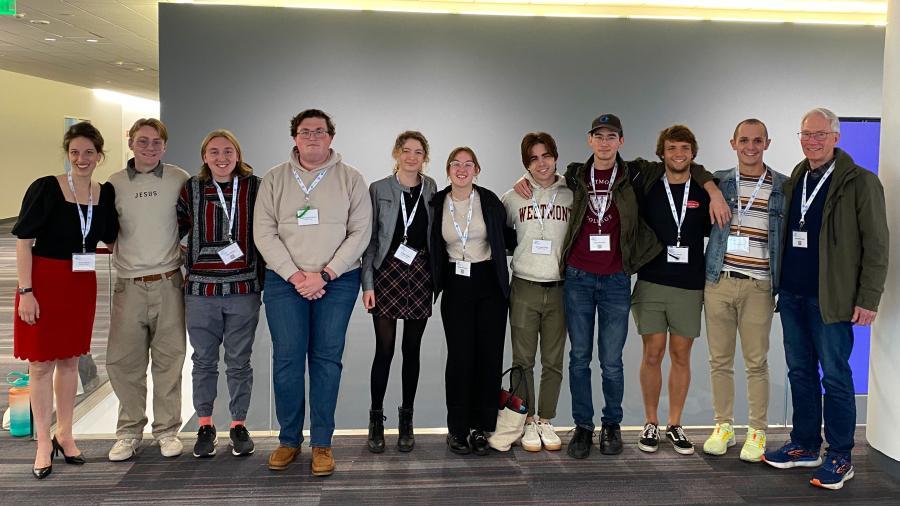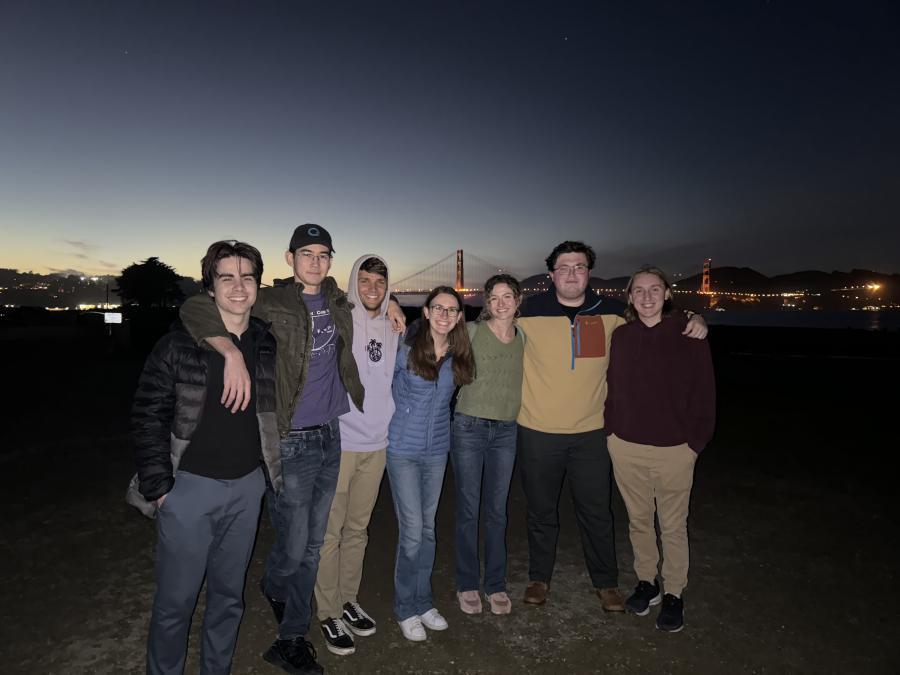Westmont News
Students Participate at World’s Largest Math Meeting

By
Scott Craig
“I was surprised at the sheer size of the math world,” said first-year student Isaiah Conway, reflecting on his trip with fellow students and faculty to the world’s largest mathematics conference Jan. 3-6 in San Francisco. Ten students and three faculty members were among nearly 6,000 other mathematicians at annual Joint Mathematics Meetings (JMM), hosted by the American Mathematical Society.

“I had never been exposed to the different fields, the different problems, the organizations, the people, or even the math celebrities,” Conway said. “I learned so much about the vast community of mathematics in this one weekend and there is so much more I want to learn now.”
At the event, Maryke van der Walt, Westmont associate professor of mathematics, spoke about her research, “A function approximation approach to the prediction of blood glucose levels,” and sophomore Sam Tang shared his summer research, “Probabilistic questions relating to a certain type of function that is analytic in the unit disk.”
Another highlight for Tang was meeting a woman who spoke about chess in the Islamic world. “She’s in the process of getting her PhD in philosophy of science, and it was fascinating to hear her experience and advice about grad school, conferences, academia and the history of math,” Tang said.
Senior Bailey Hall was part of a poster presentation, “Cutoff in the Bernoulli-Laplace Model with Unequal Colors and Urn Sizes,” that reported on research from her summer undergraduate research experience at Iowa State University.
Sophomore Amelia Ubben enjoyed the event’s art exhibition, which featured various media by artists inspired by mathematics and mathematicians who use visual art to express their love of mathematics. “It opened my eyes to the vast possibilities and mediums,” she said. “It’s a common misconception that a person is either math oriented or art oriented, but the exhibit proves math and art work closely together to create beautiful things.”
Ubben and Sarah Delp were also impressed with two talks about knot theory. “Studying the knotting and tangling of DNA and RNA strands and the nature of their knotting provides insight into mutation and disease in these strands,” Ubben said.
The group, which stayed at the Westmont in San Francisco house in Pacific Heights, also attended a reception for the Association of Christians in the Mathematical Sciences.
“The students had an incredible experience and were astounded at the vastness of the mathematics world as well as the diverse mathematical interests of the attendees, such as art, biology, epidemiology, social justice, climate change and food supply,” says Anna Aboud, assistant professor and chair of the mathematics and computer science department. “It is exceedingly rare for undergraduate students to have the opportunity to attend, much less present at, a national conference in their discipline.”